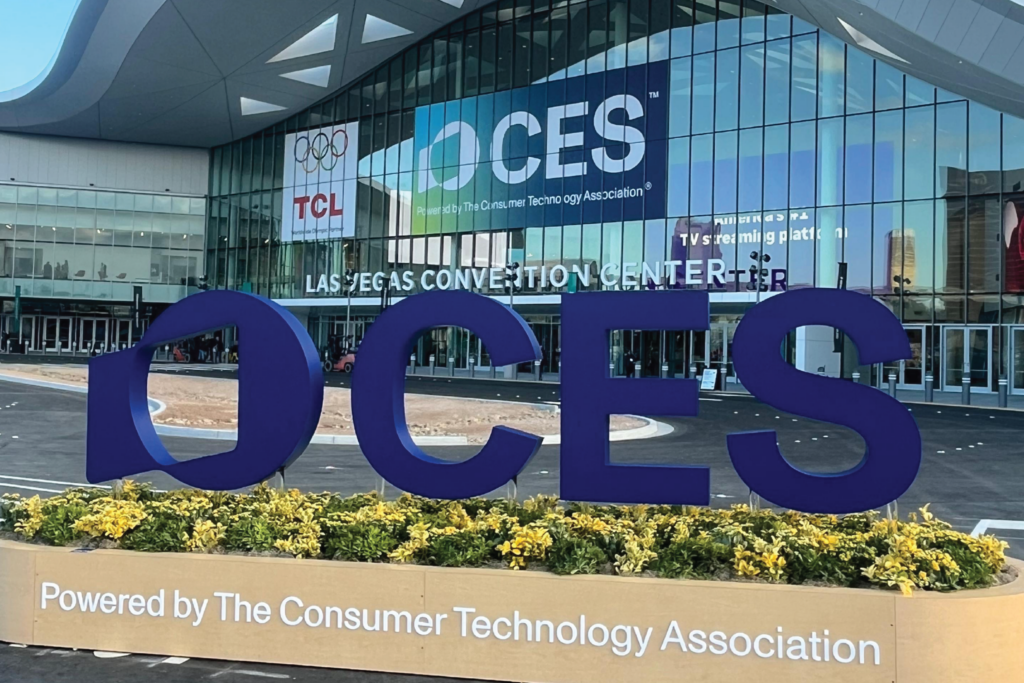The live event landscape has shifted in a major way as a result of the Covid-19 pandemic, and many organizations have switched to a hybrid event model to cater to those who can attend in-person and online all in one event. If your organization has not yet run a hybrid event, you may be wondering how it has worked out for those who have.
Looking to learn more about hybrid events and whether hybrid strategies are worth adopting? Look no further! We’ll break down all the top statistics you need to know about hybrid events to help you decide if they’re the right fit for your live event agenda. Here are all the types of statistics we’ll cover:
- Popularity and Future Growth of Hybrid Events
- Challenges Faced by Organizers and Presenters
- Importance of Networking & Community Building
- Sponsorship Revenue and Event ROI
- Attendee Perspectives on Hybrid Events
- Event Organizer Key Metrics
- Other Key Insights for Successful Hybrid Events
Let’s kick things off by looking at the popularity and projected future growth of the hybrid event model.
Popularity and Future Growth of Hybrid Events
Hybrid events have gained even more popularity as a result of the Covid-19 pandemic and ever-evolving restrictions that need to be followed by the hosting organizations. These statistics indicate what industry professionals predict about the future success and popularity of hybrid events.
The majority of event marketers plan to use hybrid strategies for events in 2021
59.4% of responding event marketers think a hybrid event strategy to manage in-person and online audiences will make up the majority of the events they run in 2021.
Source: Bizzabo
Marketers and event organizers are gaining interest in hybrid events
34% of marketers and event organizers are planning to add hybrid events to their live event portfolio, and are planning to invest more into hybrid events in the near future.
Source: Markletic
Event marketers believe that all live events will include a virtual aspect
50.7% of event marketers surveyed believe that all live events in the future will include some form of digital components.
Source: 614 Group
Organizers plan to minimize in-person events in favor of virtual
According to responding event organizers, just under one quarter (23.6%) of planned events for 2021 will use a hybrid model to minimize the need for travel or overnight accommodations, and have less than 25 attendees.
Source: American Express Global Business Travel
Covid-19 has impacted event marketing in a lasting way
Almost three quarters of surveyed marketing professionals (72%) predict that the transition to incorporating virtual elements into live events will be a lasting change resulting from the need to adapt during the Covid-19 pandemic.
Source: Impact XM
Challenges Faced by Organizers and Presenters
Marketing experts at Marketic conducted a survey of hybrid event organizers with over 3000 respondents, and from their survey they were able to generate 35 statistics about hybrid events. The following stats exemplify the top five hybrid event challenges that respondents faced.
Networking can be challenging when your audience isn’t all one in place
One of the biggest reasons why people love attending live events is the networking opportunities they present. When your attendees are split between online and physical locations, it can be hard to find ways to facilitate those same types of interactions. 71.1% of respondents said their largest challenge was connecting their online and in-person attendees.
Many virtual attendees feel left out at hybrid events
It can be difficult to provide the same experience to both in-person and online audiences when hosting an event virtually. 39% of those who attended hybrid events online said they felt unincluded.
Catering to different time zones can be challenging
When opening up your event to people worldwide, you may run into scheduling issues when taking into consideration the timing for people in other time zones. Nearly half (49%) of respondents organizing hybrid events faced the challenge of catering their schedule to a global audience.
Technology can be a large hurdle to overcome
Over two thirds (67%) of respondents said that they were concerned about providing a seamless experience using hybrid event technology.
Presenters can have difficulty balancing both onsite and online audiences
Keeping one audience engaged is hard enough for an event speaker, so keeping both in-person and online attendees engaged at the same time is a huge challenge. Almost half of event organizers (46%) said their presenters had a hard time engaging both audiences concurrently.
Importance of Networking & Community Building
Events and marketing pros at 614 Group conducted research on the future of in-person business after the pandemic. The results of their survey generated these stats and more based on responses from marketing professionals and event organizers.
Community-building is becoming an important part of hybrid event strategy
59% of event marketers said that they predict events with a virtual element will be planned with the intention of building a community and creating a space for the audience(s) to share their ideas and interact with one another.
Connecting with potential clients is the biggest concern for many event hosts
37.1% of event marketers said that the primary purpose of event attendance was to connect with potential clients and generate new leads. While the loss of face-to-face interactions will definitely be felt, virtual networking opportunities can help mitigate this to some degree.
Marketers predict events will be planned with networking as the primary purpose
51% of marketers predict that virtual events will be planned for the purpose of facilitating networking of worldwide experts in a particular field. 47% predict that networking events for businesses to find new potential clients will become common.
Online interactions can replace some in-person event objectives
Many of the most important objectives of event attendance can be replicated with similar virtual interactions. 67.9% of respondents said they could learn industry developments online, 37.6% said the same about closing deals, and 28.3% said they could display products to large audiences virtually.
Advanced technologies like augmented or virtual reality may become common ways to demonstrate products and services
Around a quarter (24.4%) of event marketers believe that augmented reality (AR) and/or virtual reality (VR) will become more commonly used in virtual or hybrid events as a way for organizers to demonstrate products or services. 15.5% believe that online cocktail hours will become more popular, and 10.9% said the same of online dinner meetings with clients.
Sponsorship Revenue and Event ROI
Hybrid events have been gaining popularity with companies looking to sponsor live events, too! As hybrid events incorporate all the best aspects of both in-person and virtual events, there are more opportunities to display ads and other sponsored content. This increase in sponsorship opportunities can result in a much greater return on investment (ROI) for the organization hosting the event.
ROI can continue to come in long after your event ends
Of the B2B organizations surveyed, 86% said they saw a return on investment seven months after their live event ended. 45% said their goal one year after their live events is to have a 3x return on their investment.
Source: Markletic
72% of event sponsors would sponsor a hybrid event if they can reach both audiences
Of the sponsors surveyed, 72% said they would sponsor a hybrid event, provided that they can reach both the in-person and online audiences adequately. 78% said they would sponsor entirely online events.
Source: AIM Group International
Most sponsors don’t want to spend as much on virtual events
56% of the surveyed event sponsors are looking to spend less of their budget on online live events. 34% are looking to keep their sponsorship spend on online events the same, and 10% said they would increase their spending on virtual events if they were guaranteed more visibility on their sponsored content.
Source: AIM Group International
Event marketers are spending less on live events due to the pandemic
Due to Covid-19 impacting the way organizations can host live events, 39% of surveyed event marketers say they are reallocating their event marketing budgets to other areas. 43% say that they are shifting that budget to content creation, 40% say they are spending it on online events, and 33% said they are spending it on search marketing.
Source: B2B Marketing Zone & Webbiquity LLC
Attendee Perspectives on Hybrid Events
There are many pros and cons to taking a hybrid approach to your live events. However, one of the most important factors that determines the success of any event is the satisfaction of the audience. So,how do attendees feel about these things? These stats demonstrate how attendees feel about the combination of virtual and live experiences at hybrid events.
Most respondents would prefer to attend a hybrid event in person than online
More than half of respondents (57%) would prefer to attend a hybrid event in person than online. Nearly three quarters of respondents (72%) said they thought they would get more value from attending in person than virtually.
Source: Markletic
More than half of attendees at hybrid events hosted by large organizations attend in person
59% of the audience at hybrid events hosted by enterprise organizations attend in-person rather than online.
Source: Markletic
Driving engagement and networking can be challenging at virtual events
Based on Bizzabo’s survey, many respondents reported that their events’ attendees were having a hard time learning and networking at virtual events. Around 68% of event organizers said that keeping up audience engagement and facilitating networking between attendees was their biggest challenge.
Source: Bizzabo
The future of live events is predicted to include virtual elements
Just over half of event organizers (50.7%) predict that live events will all incorporate some virtual aspects in the future.
Source: 614 Group
Hybrid is becoming the new norm
About two thirds of event professionals (66.5%) predict that hybrid event strategies will be their most used format in a post-Covid world.
Source: Event Manager Blog
Event Organizer Key Metrics
Markletic’s survey of hybrid event organizers showed that there are several metrics event organizers look for. Here we’ll break down the most important data that event organizers consider, and the top 3 key metrics organizers use to gauge the success of their events.
Attendee satisfaction is important to vent organizers
The goal of most event organizers is to leave their live events’ attendees satisfied with their experience. Attendee satisfaction is considered an important event success metric by 89% of organizers.
Survey your attendees to find out what they think
A very common tactic to measure success is to ask your attendees to fill out a survey after your event. 88% of event organizers use surveys as they are a great way to find out what your audience really thinks.
Key Metric #1: Pipeline Generated
At 94%, an overwhelming majority of B2B hybrid event hosts are in agreement that “pipeline generated” is a key factor in determining success.
Key Metric #2: Opportunity Acceleration
Accelerating sales opportunities is a contributor to success for B2B event organizers
Over one third of B2B organizations (34%) said that one of their key success indicators is opportunity acceleration.
Key Metric #3: Net Promoter Score (NPS)
Using a proven customer experience metric, NPS, is also popular
Around a quarter of respondents (23%) use the Net Promoter Score (NPS) calculation tactics to measure the success of their hybrid events.
Other Key Insights for Successful Hybrid Event Hosting
What else is there to know about hybrid events? These stats cover a variety of other hybrid event-related topics including how comfortable event marketers are with hybrid strategies, the importance of tech-savviness, and more.
Tech skills are becoming increasingly valuable for event organizers
About three quarters of event organizers (73.6%) say they have become more well-versed in technology after having to rely on virtual strategies during Covid-19. With hybrid and virtual events continuing to gain popularity, these tech skills will be increasingly valuable.
Source: Event Manager Blog
Repurposing event content could be beneficial for sponsors
99.5% of sponsors like to have event content available after the event ends to allow for continued exposure of their ads and marketing materials.
Source: AIM Group International
Hybrid events are still new to most event marketers
76.5% of responding event marketers said they haven’t run a hybrid event before.
Source: Bizzabo
Most event marketers understand how hybrid events work
71% of responding event marketers say that they have a grasp on what hybrid events are and how they work.
Source: Bizzabo
A good number of hybrid events require full-service agencies for assistance
35% of hybrid and virtual events would need a full-service event agency to help them with training, interview recording, venues or recording spaces, and editing of content post-event for attendees to refer back to and re-watch.
Source: American Express Global Business Travel
We hope all of these statistics have given you a new perspective of all the pros and cons of hosting running hybrid events for everyone involved – organizers, sponsors, presenters, and attendees. If you’re looking for more industry insight, check out this interview with our SVP of Client Development, John Capano on the benefits and challenges of hybrid events.






